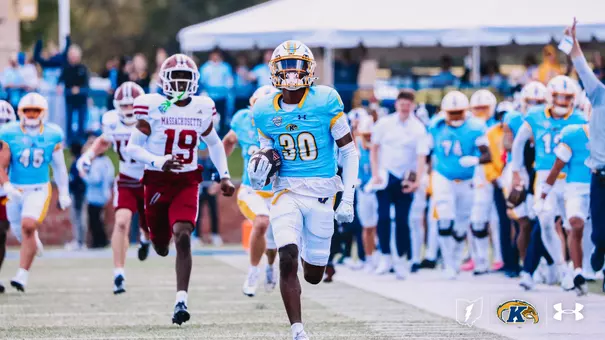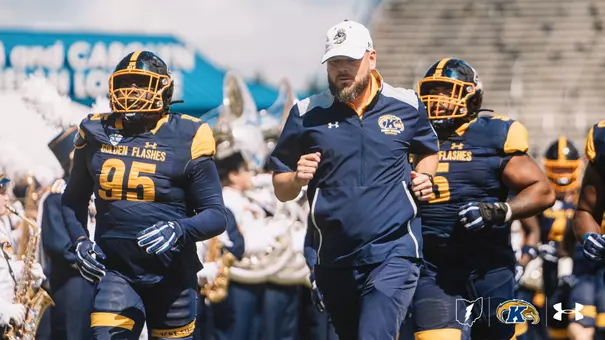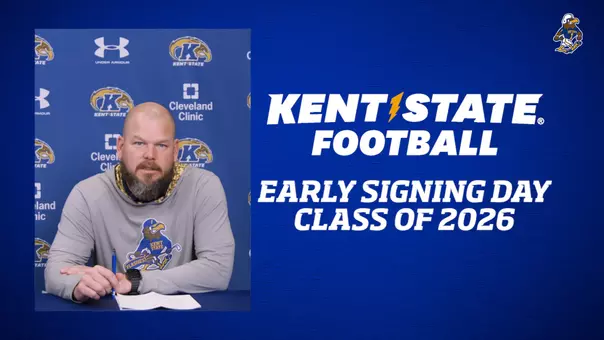
CFB 150: Penfield Tate, Kent State's First All-American
7/17/2019 12:01:00 PM | Football
Jacob Pavilack, the radio field analyst for the Golden Flashes, will be profiling influential Kent State players and coaches as well as historical moments from the program's history as part of College Football's 150th Anniversary.
The name Penfield Tate may have been lost throughout the history of Kent State football. If you've looked at the Varsity "K" Athletic Hall of Fame members who adorn the walls inside the Memorial Athletic and Convocation Center you can see Penfield's name with the Class of 1986, but what did he achieve? Well, he might just be the most interesting and influential man to suit up for the Blue and Gold.
Tate battled on the gridiron during Kent State's early years in the Mid-American Conference and holds the prestigious honor of being the first all-american in program history. In 1952, he was selected to the first team by the International News Service. In KSU's first two years as a member of the MAC in 1951 and 1952, Tate paved the way for 66 combined touchdowns in an era where games were much lower scoring than these days. He was part of the building blocks head coach Trevor J. Rees utilized to lead up the program to its first bowl appearance just two years after Tate's graduation.
The New Philadelphia, Ohio native graduated from Kent State in 1953 as a dual major in political science and pre-law. He then spent 14 years serving his country as an artillery officer in the U.S. Army and achieved the rank of captain. He attended law school while in the service and switched institutions as his deployments dictated. He settled on the University of Colorado and received his law degree in 1968.
Tate became a trailblazer in Boulder, Colorado and was elected as the city's first African-American city councilman in 1972. He continued to break barriers and became the city's first and only African-American mayor in 1974. While mayor he continued to try and make improvements for minorities and was most notable for his support of the LGBTQ community. He supported a bill that extended protections to LGBT people, and according to reports, prompted a recall effort and likely caused him his re-election.
He later served on the board in Denver that was responsible for building Coors Field, the home of Major League Baseball's Colorado Rockies from 1991 until his death in 1993. He was honored with a plaque in the centerfield concourse of the ballpark.
All-american, Army captain, city councilman, mayor, and LGBT rights activist. It's safe to say Penfield Tate made his mark both on and off the field.




















































